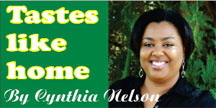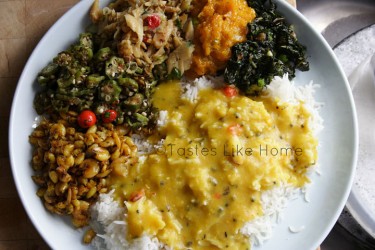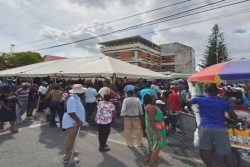Hi Everyone, Two Saturdays ago, the Guyana Cultural Association of New York, held its annual symposium, and this year the theme was: Who are we?
The theme asks a timely question and one that certainly gives us pause. In the call for papers, the organizers referenced a Stabroek News editorial in August with a headline that asked the same question: Who are we? Among the many things that the editorial spoke to was the hybridity of the Caribbean and how much of our culture, particularly our youth culture “…is largely derivative of American culture.” While I agree with much of what was said in the editorial,  I believe that this large embrace of American culture is much more widespread and not proportionately larger by the youth. The youths are easy to be spotted and tagged while the rest of us “get away” with our practices simply by being more sophisticated and subtle in our embrace.
I believe that this large embrace of American culture is much more widespread and not proportionately larger by the youth. The youths are easy to be spotted and tagged while the rest of us “get away” with our practices simply by being more sophisticated and subtle in our embrace.
Who are we is one of those questions that has many dimensions and no one definitive answer. Rather, we can have a collection of narratives that seek to shed light on who we are.
Our culture, our way of life through work, play, school, practices and traditions offers many avenues for us to explore who we are.
The thrust of my work as a food enthusiast has and continues to centre around identity. Who we are through our food and our food practices. My work seeks to find answers to questions such as:
● How do we use food to express ourselves?
● How do we use food to identify ourselves?
● What do our many actions and expressions through food communicate?
● What do these practices say about us?

Here are some other questions that spring to mind as we continue to explore who we are through food, particularly within a Guyanese context:
● Do we still cook at home?
● When do we cook at home?
● What do we cook at home (ingredients and types of cuisine)?
● Is it still important to teach people how to cook at home?
● Has home cooking taken a back seat because of the many food outlets from which we can get our foods? And I’m not just talking here about pizza, burgers and fries. We can get roti, rice, dhal, fried vegetables and the entire spectrum of everyday home cooked dishes to buy at many places.
● Where do we shop?
● What do we buy when we shop for food?
● Do we pick up local ingredients over imported ones? Or what is the proportion of local versus imported food in our market bags or shopping carts?
● Is the art of eating with one’s hands frowned upon?
● What practices do we still uphold– like Cook-up Rice on Saturday,
● Black Pudding & Souse on the weekends, Soup and Curry Sundays.
● What’s our style of eating; do we still have weekday food and weekend food?
I’d now like to share with you the paper I submitted for presentation at the symposium that looks at our heritages and connections.
Who we are is as a constant practice – for example, cooking. Rather than a static idea of who I am or who we are I think cooking can shift our focus to an active idea of “becoming who we are”.
I am Guyanese when I cook, and it involves:
Drawing on my personal heritages
To be Guyanese and to be Caribbean we must know our histories. In the same way that I learned so much of what I can do in the kitchen from watching my mum and my Aunty Betty, being who “we are” as a people requires that we have that historical knowledge. That history is often tinged with personal, racial and national tragedies. We can’t be shy about that. We must acknowledge the pain, but we must pay close attention to how we have sought to move through the pain. Time and again in my food heritage research I am struck by the fact that when confronted by oppression and deprivation, our home cooks didn’t just “make do” they creatively approached the problem (frequently depending on the generosity and knowledge of their communities) to develop dishes that have gone from ‘slave food’ or ‘poor man food’ to become the dishes we love today. Some of them have even become delicacies lusted after in the rich countries. We didn’t have to wait until some celebrity chef extol the virtue of black pudding to realize just how wonderful it is.
Seeking out more knowledge
Becoming “who we are” requires seeking out more knowledge. If in cooking as in life we are very aware of those personal histories and the personal and racial slights, we often are less aware of what is going on in other people’s kitchens, in other peoples’ lives and histories. This is understandable, but it can close us off. Becoming who we are requires finding out other people’s stories. I have a personal commitment to researching the broad foodscape of Guyana and the Caribbean. You would be amazed at what I learn about myself and who we are by the simple task of finding out about others.
Building new connections and sharing ideas
The task of seeking out more knowledge also brings us to rethink our communities. There has been a way we might think of our community as only based on our neighbourhood or racial group, but when we seek out knowledge, in my case about cooking practices, in an open and interested way, we build and rebuild new and wider communities. We also learn new ways to do things and thus becoming who we are becomes a progressive rather than a retrograde practice. It becomes innovative.
Sharing the fruits of my culinary labours
There is nothing that is more characteristic of the home cook than the act of sharing. We share recipes, we share tips, we invite people over for meals and share our time and our meals with them, when we make too much we share our dishes with our friends and neighbours. In these sharing practices might we not see an alternative economic model for becoming who we are? Globally we are strenuously encouraged to become more and more capitalist – to reduce our entire life to the pursuit of profit. Nationally it seems that our histories of pain can sometimes translate into a distressing desire to “make sure we get ours” a type of “grabology” that can work along racial lines, party lines, class lines, family lines etc. However, what, if instead of a grasping capitalist grabology we worked on building on our practices of sharing?
Tuning in to my personal tastes
In much of what I’ve said I have emphasized the community because cooking teaches us that community is important. However, our history can also demonstrate the dangers of the collective. But again cooking offers us a different model for becoming who we are. Though it emphasizes the community it also shows that we must build up our awareness of our personal tastes. Time and again I tell readers, family and friends that a recipe is only one person’s interpretation of how a dish should be made. We’re the ones who must tweak that recipe so it fits our taste buds. In other words, rather than losing who we are to some mechanical, rote formula of Guyaneseness we need self-reflective habits to build our identities.
Doing it everyday
Everyday the home cook is confronted with the same question – what’s for dinner? What can we learn about becoming who we are from this? It’s something we have to do every day. Sometimes it feels as if our commitment to the type of inclusive Guyaneseness that I’ve been writing about (one that acknowledges our histories and seeks out new knowledge, is focused on sharing and personal desires) is something that we only do on special occasions (sometimes not even then) like Mash and Independence. We wave our flag at a Soca event when someone says “anybody from Guyana”; at national events we tout our motto. But becoming who we are is an everyday practice just like cooking.
Cynthia





